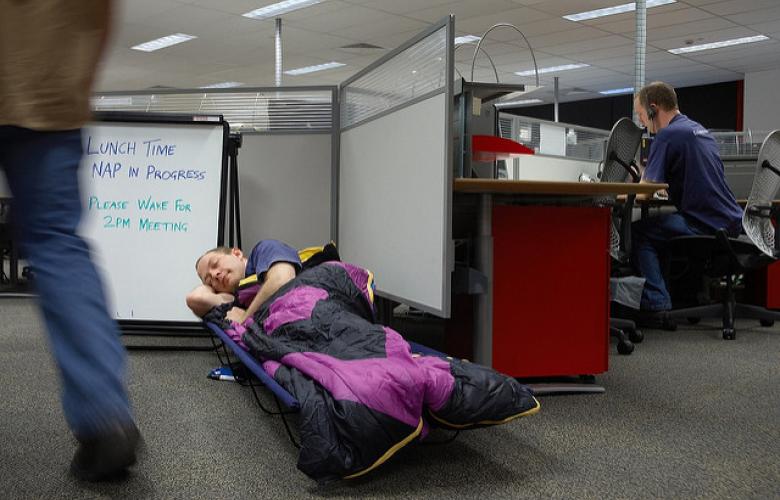Time for employers to wake up to sleep issues
Contact
Time for employers to wake up to sleep issues
Nearly 40% of Australian workers are not getting enough sleep, impacting performance at work and overall wellbeing, according to new data.
Tired at work? According to Australian health & wellbeing technology business, WorkScore, lack of sleep is having a big impact on performance at work and overall wellbeing.
In fact, data from WorkScore's online survey shows nearly 40% of all employees aren’t getting enough sleep. More than 8,800 workers have participated in the unique, rolling survey.
WorkScore co-founder, Suzanne Deeming said “It’s widely accepted that the average person needs somewhere between seven to nine hours sleep per night for overall physical and mental wellbeing. For those employees not getting enough sleep, it’s clear that work is having an impact”.
The advantages of a good night’s sleep are well known. WorkScore data underscores this knowledge, finding that employees who sleep the recommended seven to nine hours per night are more flexible at work, have more energy, find it easier to switch off from work, rate their work/life balance the highest and, on average, score 25% higher for overall wellbeing.
Lack of sleep contributes to work-related stress
Not getting enough sleep is a big contributor to increased stress at work. “Employees who sleep less than seven hours per night are 23% more stressed, while those who sleep less than five hours per night rate work 17% more stressful,” noted Deeming.
But more sleep doesn’t always mean better wellbeing and performance - the 1% of workers who sleep 10 hours or more per night report they have 50% less energy than those who sleep seven to nine hours per night. Interestingly, they also report they have less energy and concentration than those people who sleep less than five hours.
There’s also a high correlation between those people who get the recommended amount of sleep and how they rate their workplace as caring about their wellbeing.
What can businesses do to help?
Suzanne Deeming suggests employers can help improve what happens after hours by promoting the right for employees to disconnect by reducing or even banning work communication after business hours.
“They should also encourage employees to take regular breaks during the work day and to make time for a lunch break” she said.
More from The Business Conversation:
How often do you go home from work on time?
GM Holden named 2018 Flexible Work Champion
Entrepreneurs need to look after their personal wellbeing: KPMG Australia




